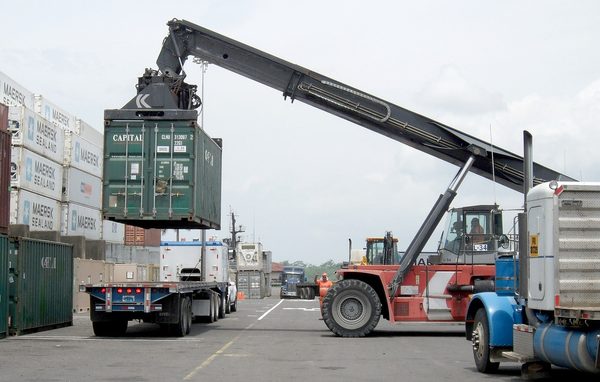If your business sells products – either directly to consumers or to other companies – you need to consider logistics in your strategy.
Logistics covers the handling, packaging, storage and transport of goods to and from your business premises – both raw materials coming in, and finished products going out.

Here’s our overview of transport and logistics for businesses.
Transport options
The first thing to do is to look at your different transport options.
- Road and rail freight – if you’re delivering within the UK, and even within the EU, this is likely to be the best and most cost-effective option. Rail freight allows for faster delivery.
- Sea freight – for longer-distance deliveries which don’t need to be delivered within a very short time-frame.
- Air freight – allows for quicker long-distance deliveries than sea freight, but can be extremely expensive, especially for heavy or bulky goods.
- Delivery by more than one mode – also called ‘multi-modal delivery’. Most long-distance freight will involve this – for example, taking goods by road to the docks, then loading into a ship, and back onto road freight at the other end.
To asses which mode is right for you, think about:
- how fast the goods need to be delivered
- what packaging you’ll need to keep goods protected, both from damage and from theft
- what handling is required – including when transferring goods from one mode of transport to another
- containers – especially for multi-modal deliveries, these need to be a standard size and shape for efficient loading and unloading
- any special requirements – eg refrigeration for perishable foods
- the relative cost of different options, including specialist handling and storage
- any insurance needed
- the documentation you need to keep
- import and export duty and taxes
- for international deliveries, any specific legal requirements in the other countries the goods will pass through
For hazardous goods such as explosive or corrosive chemicals, there are extra rules to follow. You will need a delivery crew that’s specially trained in handling the goods and keeping the right documentation.
If your logistical needs are complex – eg many different types of deliveries going to different places – you could benefit from using a freight forwarder (see below)
Using a freight forwarder
Most small businesses should consider using a specialist freight forwarder to look after their logistics, especially for importing and exporting.
A freight forwarder is an agent who can advise you on your transport options and what it will cost, as well as any regulations you need to be aware of and the documents to keep.
They can help you make cost savings, as they’ll know the most efficient options and routes, and can advise you on consolidation (putting together several smaller loads to be transported together instead of individually). Freight forwarders might also offer help with other aspects of logistics, such as packaging and storage.
An experienced international forwarder can also help with clearing goods through customs.
To find international freight forwarders, visit the British International Freight Association website at www.bifa.org.
This article is provided only for general informational and educational purposes. It is not offered as and does not constitute legal or other professional advice on the subject matter in question. You should not act or rely on information contained in this website without first seeking professional advice on the subject matter in question.





